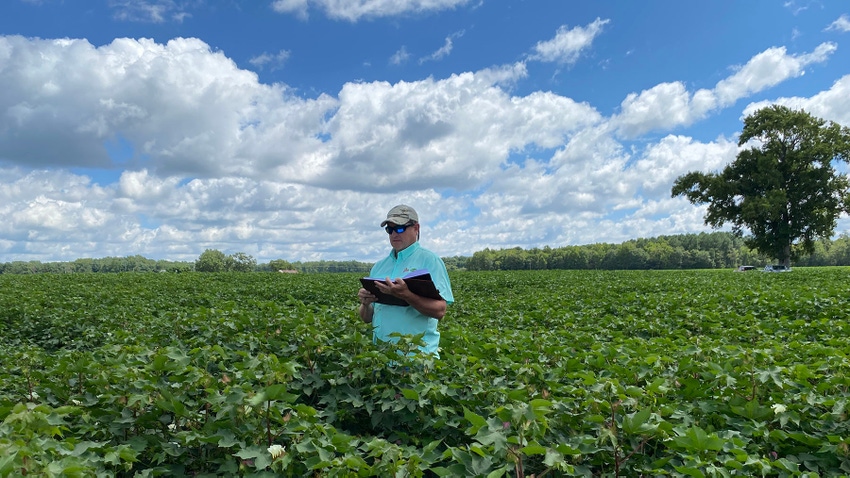
Increased recognition of the impact nematodes have on yield and quality is spurring cottonseed companies to prioritize breeding for resistance to those tiny worms that wallop yields.
“This is the tip of the iceberg. We’re getting ready to really take off with these,” promises Kenny Melton, western region agronomic manager at BASF.
The goal is to deliver improved yield and higher quality in addition to offering nematode and, in some cases, also disease resistance.
“The resistant varieties have to have the quality that growers expect from any other trait platform or commercial variety,” said Eric Best, Deltapine cotton product manager. Because nematodes rarely infest an entire field, Best said, a resistant variety that doesn’t yield as well as a competitive commercial variety isn’t going to perform at the yield level a grower wants.
To make the cut, Best said, “a resistant variety has to yield with the other commercial varieties and with the competition.”
Resistant varieties
BASF, Bayer and PhytoGen have nematode-resistant cotton varieties available in 2023 and all expect to add more options to the lineup for 2024. Americot plans to introduce cottonseed with nematode resistance traits in 2025.
BASF will decide in December which varieties to move into the market. All of the varieties under consideration have root-knot-nematode resistance and two also have reniform-nematode resistance, Melton said. All also carry BASF’s new Axant trait.
“Going forward we plan on having bacterial blight resistance in everything, as well as root-knot tolerance/resistance,” Melton said. “We also will have a lot more offerings, a lot more varieties, coming forward with reniform tolerance/resistance.”
The benefit to farmers who plant nematode-resistant varieties with strong genetics is healthier cotton plants with high yield potential regardless of the level of nematode pressure, said Phytogen Agronomist Shawn Butler.
“We call it ‘rootability’,” Butler said. “You are getting a better root even in the absence of nematodes.”
For cotton consultant Andy Graves, the goal is profitability. “We need all the chemistries and varieties with resistance that we can get,” Graves said.
Varieties with resistance
BASF offers three traited varieties with nematode resistance, primarily for growers in the West:
ST 5600B2XF provides root-knot nematode resistance.
FM 1621GL offers root-knot nematode tolerance and resistance to bacterial blight. Other characteristics include early maturity and a moderate growth habit.
FM 1730GLT delivers verticillium wilt tolerance, root-knot nematode tolerance and resistance to bacterial blight.
Deltapine currently offers two nematode-resistant varieties:
DP 2141NR B3XF is a Bollgard 3 XtendFlex cotton variety with resistance to both reniform and root-knot nematodes that’s adapted to the Southeast and Midsouth.
DP 2143NR B3XF is a Bollgard 3 XtendFlex cotton variety for the Southwest that has resistance to both reniform and root-knot nematodes and moderate tolerance to verticillium wilt.
PhytoGen recommends these WideStrike 3, Roundup Ready Flex varieties with the Enlist trait and these resistance packages for Midsouth cotton growers:
PHY 411 W3FE and PHY 443 W3FE deliver bacterial blight resistance, root-knot- and reniform-nematode resistance.
PHY 360 W3FE provides root-knot-nematode resistance and bacterial blight resistance.
Read more about:
NematodesAbout the Author(s)
You May Also Like






